by M. C. Jennings | Mar 1, 2021 | Academics, Accounting, Alumni Spotlight, COBA Faculty, COBA Staff, College Decisions, Faith Infusion, MAcc, Outcomes, Uncategorized

Gbemi Adebesin
When Gbemi (pronounced Bemi/Bimi) Adebesin (’17) came to ACU, she was no ordinary freshman. Gbemi came to ACU as an international student from Nigeria at the tender age of 15. Prior to that, she had spent 6 years in boarding school so the adjustment to a new place, a new culture, and a new style of learning was a shock. Gbemi began her academic career as a biochemistry pre-med major but in her sophomore year, she says she gained more insight and clarity into her personality and purpose and changed her major to accounting graduating in 2017 with a Masters in Accountancy.
Being such a young college student meant that ACU played a huge part in shaping Gbemi and her future as an adult. She said, “I remember being so super shy when I arrived and having a lot of doubts in my faith and career; but my time and experiences at ACU definitely helped me broaden my horizon and gain more perspective, direction, and confidence. I can’t overemphasize how much the knowledge, culture, and skills I gained from ACU and COBA continues to be so relevant and important to me to date.”
Part of the vision, mission, and values that COBA hopes to instill in students is “Excellence and Impact” which means upholding high moral and professional standards of excellence for faculty, staff, students, and alumni, calling each person to a life of service and leadership that glorifies God and transforms communities and society. Gbemi is a shining example of that excellence. She obtained her CPA (Certified Public Accountant) in 2018 and her CFE (Certified Fraud Examiner) in 2020, receiving the notable honor of Top Achiever Africa Award from the ACFE (Association of Certified Fraud Examiners) South Africa chapter for having the highest overall score in Africa. Adebesin recognizes how special receiving the honor is saying, “It feels amazing and that’s partly because I had never expected to receive such an award. The exam is designed such that you never really know your scores, you only know if you pass or not, so I didn’t think such an award existed. Taking the exam was out of my deep interest and passion for the field, so to have that reflected by the award is truly special.”
Gbemi is currently working as an external auditor with PricewaterhouseCoopers (PwC) Nigeria but gained experience in the accounting field working at Eide Bailly in Abilene for a year before moving back home and enrolling in a one-year nation-building program during which she joined PwC as an auditor. Like most new graduates, Gbemi found the transition from being a student working full time to be a bit jarring. “Having spent the majority of my life at school with no internships in my career field, I felt like a fish out of water every day for the first few months. I really loved and enjoyed school so transitioning from that secure ‘bubble’ environment was a big step out of my comfort zone and a paradigm shift. Let’s just say reality hit me.” Along with the adjustment to work, there have been other challenges she has faced. One of those challenges is something that’s felt by many but rarely discussed – Imposter Syndrome. She said, “I feel the challenge I struggled with the most and for the longest time is Imposter Syndrome, which has held me back in some ways; but I’m learning to just show up with my best foot forward and leave the rest. The other notable challenge I experience, being in the working world now, is finding ways to integrate all facets of my life with my work and ensuring my faith and relationships don’t suffer.”
Adebesin’s faith is integral in her career and her relationships with colleagues and clients. “My faith plays a huge role in my work and is what keeps me going. Apart from cultivating a greater sense of meaning in my work, it has shaped and improved my values, work ethic, and relationships with people like my colleagues, clients, etc. It drives me to continually strive to be better in everything I do and contribute as much as I can to a better world and environment. Since I spend most of my time at work, work is one major way I’m able to express and fulfill my faith through leading by example and letting my life and work tell the story of my faith and trust in God.”
The people and places of ACU were formative for Gbemi in many ways. Some of her favorite memories at ACU are those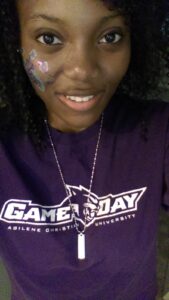 “little moments like walking across campus, even though sometimes it’s while rushing to class, hearing the chapel bells ringing, being in class, the activities and events (homecoming with the fireworks, tailgates with amazing food and activities, international student events, theater, etc.), the Bean and campus center food, snow days, chapel worship, and most importantly the time I got to spend with all the wonderful people I met at ACU.”
“little moments like walking across campus, even though sometimes it’s while rushing to class, hearing the chapel bells ringing, being in class, the activities and events (homecoming with the fireworks, tailgates with amazing food and activities, international student events, theater, etc.), the Bean and campus center food, snow days, chapel worship, and most importantly the time I got to spend with all the wonderful people I met at ACU.”
Adebesin said that some of her best memories come from her time at McDonald dorm in the spring of 2013 saying, “I was so shy back then, but I still remember how welcoming everyone I met there was.” She cherishes the friendship of the people she encountered while working at the ACU Foundation and Advancement office, as a tutor in the University Access Programs, and at Residence Life, who were so kind to her, saying how much she deeply appreciated them. She is also thankful for the kindness and support she received from her academic advisors, the ACU Career Center, and Student Financial Services.
Gbemi also has high praise for her former professors, saying, “Wow, I love a lot of different professors for different reasons and they all left memorable impressions on me in various ways. They were so admirable, kind, patient, and always willing to help, even beyond the classroom, which really enhanced my ACU experience. I guess I can use this as a form of a shout-out to all my professors from COBA (in no particular order): Professors Perkins, Vardiman, Stewart, Fowler, Little, Clements, Stovall, Neill, Wertheim, Brister, Burton, Easter, Phillips, and the Popes. I didn’t have Professors Marquardt and Tippens for class, but they were also really caring on other occasions. There were also quite a number outside of COBA too that I appreciate. For example, I’m always grateful for the Powells, who took my siblings and me in as part of their family, Professor David Merrell, who always cared for me and my sister, and Professor John Willis who was such a loving person. I know I mentioned many names and there are still more I could mention. It was truly a blessing having these wonderful and brilliant professors and I just want them to know that I always remember and appreciate them beyond words, and I can still mention a thing or two that I learned from each of them that stuck with me.”
As the saying goes, “hindsight is 20/20”. Gbemi’s advice for freshmen comes from looking back on what she experienced and learned while at ACU. “I’d say ‘be water’ and be ready to step out of your comfort zone. Get involved in campus activities and keep up with the meaningful relationships you form but obviously not to the detriment of studying and classes. The professors and students are so helpful and there are numerous resources and tools on the ACU campus, so be open to asking around and being vocal about your needs. One of the most important things for incoming COBA freshmen is to make use of the Career Center early.”
As business students look to their future careers, she encourages them to take advantage of all that the ACU Career Center and COBA’s Professional Development program have to offer. “I’d advise them to be curious, open-minded, and continue to challenge themselves in as many ways as possible. They should try to get practical experience and exposure through networking, jobs, and internship opportunities. An internship was something I didn’t experience and now know its value in hindsight. The career center is a great resource to take advantage of for this. Also, this is a great time to start taking a holistic view of their life and being mindful to have a clear life vision for their future.”
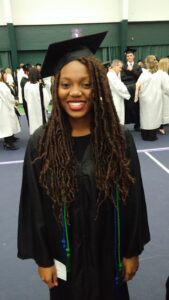 Adebesin knows that attending college in a foreign country is a challenge for many international students. She advises international students to “be open because most people at ACU are always ready and willing to help. The international student community has many wonderful people as well as a lot of activities such as international student dinner, ethnos, Hispanic Unidos, etc. I always had an amazing time at these events and would encourage every international student to participate. In light of this, I would like to give a special shout-out to Lucy Dawson, Laura Blake, Daniel Garcia, Susan and Art Green, and the other international student office staff who made ACU feel like home.” Gbemi was also enrolled in the Friendship Family Program where she met Karen Douglas, a counselor at ACU. “Karen and her family have been such a blessing in my life while at ACU and after in more ways than I can thank her for. I’m very thankful and blessed to have met someone so loving and amazing and to have another home and family away from home.”
Adebesin knows that attending college in a foreign country is a challenge for many international students. She advises international students to “be open because most people at ACU are always ready and willing to help. The international student community has many wonderful people as well as a lot of activities such as international student dinner, ethnos, Hispanic Unidos, etc. I always had an amazing time at these events and would encourage every international student to participate. In light of this, I would like to give a special shout-out to Lucy Dawson, Laura Blake, Daniel Garcia, Susan and Art Green, and the other international student office staff who made ACU feel like home.” Gbemi was also enrolled in the Friendship Family Program where she met Karen Douglas, a counselor at ACU. “Karen and her family have been such a blessing in my life while at ACU and after in more ways than I can thank her for. I’m very thankful and blessed to have met someone so loving and amazing and to have another home and family away from home.”
Gbemi Adebesin truly is living out the vision of the college to inspire, equip and connect Christian business and technology professionals to honor God and bless the world as she lives out her calling in her vocation and in her community. “My time at ACU has been so memorable, even the littlest experiences, so I experience a lot of nostalgia when I look back. I will forever feel blessed to have been a part of that community and to have these spectacular people in my memories, including those not mentioned here.” Congratulations to Gbemi on the honor received – we can’t wait to see the ways she changes the world.
by Katherine Norris | Oct 8, 2020 | Academics, COBA Faculty, Faculty Testimonials, Faith Infusion, Management, Uncategorized
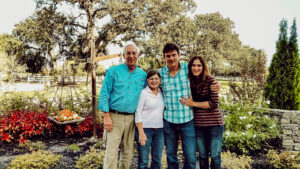 We want to give a warm welcome to Dr. Julia Dare, Visiting Professor of Management Sciences. Before Dr. Dare began teaching, she worked in corporate strategy consulting and global management in the biopharmaceutical industry. Since Dr. Dare made the transition into academia, she says, “Inspiring and equipping my students is pure joy.”
We want to give a warm welcome to Dr. Julia Dare, Visiting Professor of Management Sciences. Before Dr. Dare began teaching, she worked in corporate strategy consulting and global management in the biopharmaceutical industry. Since Dr. Dare made the transition into academia, she says, “Inspiring and equipping my students is pure joy.”
Dr. Dare currently teaches courses in Strategic Management, and International Business, integrating Business Ethics and CSR, which are the fields that she worked in before she began teaching.“I fought some serious corporate ethical battles with God as my shield, compass, and strength. He never fails. My passion for traveling to different countries and enculturation began in the spring semester of my junior year at SMU. I studied abroad in Paris, and all of our courses were taught in French. I lived with a French family and quickly became a Parisienne. My friends and I decided to buy a Eurail pass and left every weekend to a different country. Our backpacking adventures were unforgettable. I stayed the summer in Europe to dive into as many countries and cultures we had yet to explore. None of us returned to America the same. We had become citizens of Europe and rather fearless. What seemed critical to us before our experience overseas seemed like foolishness after coming home. It’s a great analogy of the transformation we experience in laying our old life down with its rituals and idols to follow Jesus. He turns our worldly desires upside down when He opens our eyes to true riches as we radically pursue Him. When we become Kingdom citizens our lives are never the same. All other adventures fall short of life with our omnipotent Savior.”
Dr. Dare says what she enjoys most about teaching students is that “They come to class seeking truth, wisdom, and their calling. My students are excited to learn about global business, different cultures, ethical dilemmas, and how to navigate their careers with purpose and pursue God. We dive into these areas in each course but go deeper outside of class. After graduation, helping my students flourish as they pursue their unique calling is pure joy.”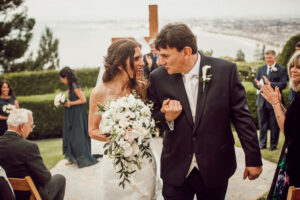
Moving to Texas to teach has been an adjustment but Dare said that she is looking forward to learning “the depth and width of this assignment. My students teach me every semester and the hearts of my colleagues are Texas-sized. ACU is a powerful force for God’s Kingdom. I’m thrilled the Lord planted me here in this season of creation and transformation.”
Dr. Dare’s world-wide experiences have greatly influenced her passions and hobbies outside of teaching. She told us she really enjoys, “Skiing in Tahoe & the Swiss Alps, scuba diving the Great Barrier Reef and French Polynesia, connecting with God’s people and the ones He’s pursuing in countries around the world, Hope & Grace (my longhaired blonde and black & tan mini dachshunds), my irreplaceable family & friends who have become sisters, sailing to Catalina, hiking to hidden waterfalls through unmarked terrain, writing poetry, rugged coastal beauty, and getting lost in worship.”
Something that students might be surprised to find out about Dr. Dare is that: “My sister-in-law & niece are Taiwanese and my husband is South African. We have all lived & traveled across continents, so we are a very international family!”
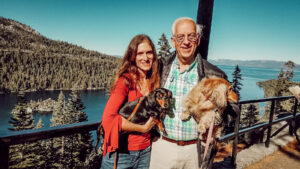 To close, Dr. Dare wanted students to know, “Coming to Abilene from California is such an adventure. I specifically came for ACU students, so please don’t be shy. Join our small chapel group, stay after class, ask to meet, or find me walking Hope & Grace around campus. You are the reason I’m here — to strengthen and inspire you to pursue Jesus and His will for your life.”
To close, Dr. Dare wanted students to know, “Coming to Abilene from California is such an adventure. I specifically came for ACU students, so please don’t be shy. Join our small chapel group, stay after class, ask to meet, or find me walking Hope & Grace around campus. You are the reason I’m here — to strengthen and inspire you to pursue Jesus and His will for your life.”
by Katherine Norris | Sep 22, 2020 | Academics, Accounting, COBA Faculty, Faculty Testimonials, Faith Infusion, Financial Management, Uncategorized
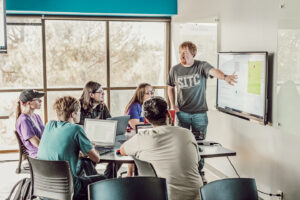
Pre-COVID-19: Dr. James Prather with SITC students
COVID-19 has brought changes and challenges all across the country, including the ACU campus. From the middle of the spring semester to the current fall semester, our faculty have continuously adjusted how they deliver their class material and how to interact with their students. We interviewed Dr. Laura Phillips (’88), associate professor of management, Clint Buck, assistant dean and instructor of accounting, and Dr. Don Pope, associate professor of management to hear about their experiences teaching during the pandemic and how they are working to overcome the challenges that it has presented.
What challenges has COVID-19 brought to the classroom?
Phillips: “My challenges were in the spring and Maymester terms. In the spring I was teaching two semesters of stats that were supposed to start the week after spring break. When we took that extra week off to regroup, I lost 14% of my semester. Also, since we’d never met in person, I didn’t know any of the students and we had not been able to create a class culture before shifting to online. My other class was supposed to be a one-week Maymester in Dallas with about 20 guest speakers and several field trips. That class went virtual as well, which was a huge shift.”
Buck: “FACE MASKS! While I understand the need for face masks, they pose a great challenge in the classroom. It’s hard to ‘read’ the classroom and see if concepts are making sense, if jokes are landing, etc., and it is also hard to teach while wearing a mask. Seeing people’s faces, sending and receiving smiles, and shaking hands are all actions relied upon in the past to establish and nurture connection and community – hallmarks of the COBA and ACU experience. The current realities are forcing us to rethink how we establish and nurture our community, which is very challenging.”
Pope: “The inability to talk with and help students face to face, along with reduced interaction with faculty and staff colleagues.”
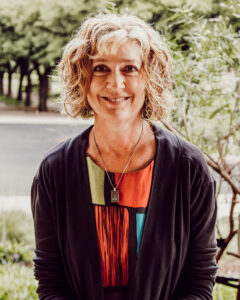
Dr. Laura Philips
What did you do to overcome those challenges?
Phillips: “Lots of trial and error! We’d try some things for a week in stats, and if it wasn’t working, we’d make adjustments for the next week. My coworkers were all very supportive but since we were working remotely and everyone was scrambling, there wasn’t a lot of time to sit around and think philosophically about how we should approach our classes. My schedule didn’t always allow me to attend but the weekly COBA Zoom prayer times have been great! And throughout the summer, the staff in the Adams Center and the crew they assembled to provide resources and training for the faculty have been outstanding.”
Buck: “My teaching colleagues have been invaluable in navigating these issues, and they have also been helpful in the tactical aspects of the job (great suggestions for teaching online and in a distanced classroom, things to look for, things to avoid, etc.). My administrative colleagues have been very good to normalize the challenges we face. It is not easy to be a good employee, a good spouse, and a good parent while navigating a global pandemic, and I am grateful for their faithful demonstration of grace throughout this season.”
Pope: “Through the use of technology tools – online teaching in Canvas and Zoom, we carry on and push through. I would like to compliment the IT people in the background here who work tirelessly ‘below the radar’ and receive little thanks. I would also like to thank the educational technology support staff in the Adams Center and the Library. They are amazing.”
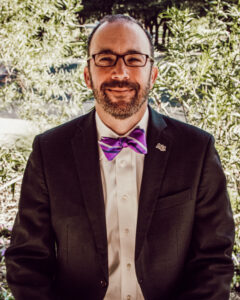
Clint Buck
What’s different about the current fall semester?
Phillips: “I can’t really address this question because I’m teaching online this semester. I am taking German, so I’ve experienced the classroom as a student, but not as a professor.”
Buck: “Can’t shake hands or see smiles; can’t see if a concept or idea is resonating or not. Things I took for granted – like handing out printed material in class! – are very noticeable in their absence. Also, I used to enjoy having a very special teaching assistant in class at least once each semester, but my eight-year-old daughter (Lillian) is unable to do so this semester. :( EVERYONE is very sad about this.”
Pope: “My classes ended up all being online this semester, so obviously that is really different. But when I/we return to in-person classes again, I plan to utilize many of the recorded lectures and clarified teaching materials that have been developed during the pandemic. In the past, I relied too much on being able to verbally explain something, and now I see that some of my notes are not very clearly written. So, the current situation is an opportunity to see things differently and learn and grow.”
COBA’s vision is to inspire, equip, and connect Christian business and technology professionals to honor God and bless the world. How are you integrating the vision with your students when you can’t always be with them?
Phillips: “I don’t start teaching until October this semester so most of my interaction with students is coming through a community group I’m leading for some COBA freshmen and meeting with students about study abroad next fall. I’m trying to stay connected to students even though I’m not in the classroom. I guess right now I’m spending a lot of time trying to inspire them to spend a semester abroad. It is such a transformational experience but sometimes it’s hard for students to visualize themselves doing something so vastly different from their normal life. I’m also trying to help some of our freshmen connect in our small group. They have such a great attitude but I think it’s harder to get to know people with the masks and social distancing in the classrooms. I’m hoping that our community group helps them get to know a handful of their COBA peers and that they will have a few classmates with whom they have connected at a deeper level.”
Buck: “I’m working hard to use Canvas better so information is accessible and organized for students.”
Pope: “In terms of connection, I am trying to encourage more emailed thoughts about prayer needs, scripture, and other personal concerns. My wife has, for 20 years, invited students into our home for meals and we typically have had large groups. This fall, she is going to considerable effort to plan, prepare, and host multiple smaller groups in a safe manner.”
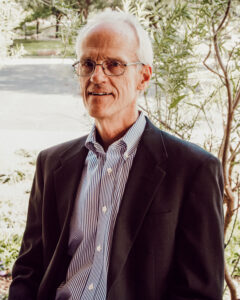
Dr. Don Pope
What are you excited about for this semester?
Phillips: “Getting to know some of our new freshmen, seeing students get excited about spending a semester abroad, ‘meeting’ my students – even though we will not be gathering in person.”
Buck: “Seeing how we expand our vision of community. We’ve relied on very traditional definitions and expressions of community (e.g. shaking hands, sharing a meal, attending a sporting event or attending the performing arts) for a long time, and the current moment forces us to rethink them. When things return to something resembling what we used to call ‘normal’, we will hold these definitions/expressions even more sacred and special than before.”
Pope: “‘Excited’ is probably not a word that we would use about this situation. But, I do think that we are all learning some valuable lessons about the human need to be with other people, to accept each other’s different perspectives on things, and live together in community. It will be interesting to see how family, education, business, and church are changed long term by this experience.”
While the ACU campus looks and works differently in 2020, COVID-19 hasn’t stopped faculty members from looking for ways to put students first. Echoed in the comments of each of our faculty members is the theme that is so central to ACU – community. We value our students and our relationships with them as faculty and staff. We will continue to strive to connect in the best ways possible this semester and we look forward to the day that we can see those smiles in the classroom.
by Katherine Norris | May 28, 2020 | Academics, COBA Faculty, Research, Uncategorized
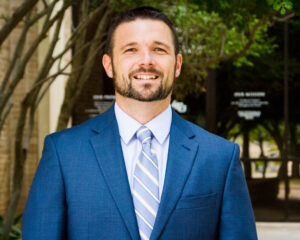 COBA professors have been in a researching groove lately (as Don Pope would say, “They must be butter; they’re on a roll.”). We have seen professors such as Dr. Monty Lynn, Dr. Ryan Jessup, and now Dr. Dennis Marquardt, continue to conduct important research and have their work published in industry journals. Dennis Marquardt recently wrote a paper entitled: “Leader Goal Orientation and Ethical Leadership: A Socio-Cognitive Approach of the Impact of Leader Goal-Oriented Behavior on Employee Unethical Behavior.” The paper was written with co-authors Dr. Wendy Casper at UT-Arlington and Dr. Maribeth Kuenzi at SMU.
COBA professors have been in a researching groove lately (as Don Pope would say, “They must be butter; they’re on a roll.”). We have seen professors such as Dr. Monty Lynn, Dr. Ryan Jessup, and now Dr. Dennis Marquardt, continue to conduct important research and have their work published in industry journals. Dennis Marquardt recently wrote a paper entitled: “Leader Goal Orientation and Ethical Leadership: A Socio-Cognitive Approach of the Impact of Leader Goal-Oriented Behavior on Employee Unethical Behavior.” The paper was written with co-authors Dr. Wendy Casper at UT-Arlington and Dr. Maribeth Kuenzi at SMU.
We asked Dr. Marquardt where his motivation and inspiration to work on this research came from. “For the past decade, I’ve been fascinated by the idea of ‘unintended consequences,’ specifically as this applies to leader/follower dyads. In other words, are there attitudes or behaviors that managers engage in that don’t necessarily seem unethical, but may have the consequence of unknowingly encouraging unethical behavior among employees.”
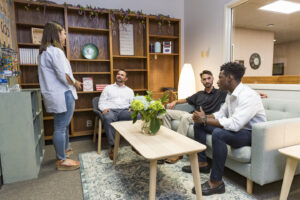
Photo by Jeremy Enlow
Dr. Marquardt summarized the concepts in the research and what type of consequences can come from such situations saying, “In this paper, we propose that leaders with high levels of a performance-avoid goal orientation are perceived to be less ethical and in turn, encourage employees to engage in unethical behaviors. Performance-avoid goal orientation refers to the extent to which a person approaches tasks or goals with a desire to not look incompetent compared to their peers. When a leader has such an orientation they are likely to send cues and signals to employees that making mistakes is to be avoided at all costs, that having the appearance of incompetence is unacceptable, or that making the leader look bad is a cardinal sin.”
He continued, “These cues and signals don’t seem unethical on their own, but imagine what they might do to employees over time. If I’m constantly hearing about avoiding mistakes and failures and trying to not look incompetent, what do I do when I actually do make a mistake? We propose that you might have a higher propensity to consider covering things up, blaming others, or lying about your performance. Our study analyzing several hundred leader/follower dyads found that leaders with high levels of avoid-goal orientation have significantly lower levels of ethical leadership (as perceived by their followers) and have employees who are more likely to engage in unethical behavior. Only when leaders also had a high learning goal orientation did the effects of avoid goal orientation become non-significant.”
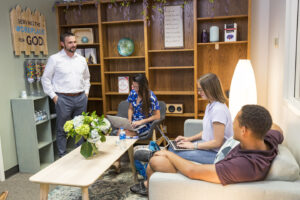
Photo by Jeremy Enlow
Having this paper published is definitely a feeling of joy and accomplishment for Marquardt. “This paper has been in the works since 2014 and out of all my published papers, it’s the one I’m most proud of. God is good! There are many times I was going to give up on it because it took so many hours of work over these past six years. I’m thankful for great co-authors who are people I respect and people who have modeled a learning goal orientation for me.”
Dr. Marquardt’s paper “Leader Goal Orientation and Ethical Leadership: A Socio-Cognitive Approach of the Impact of Leader Goal-Oriented Behavior on Employee Unethical Behavior.” was published in the Journal of Business Ethics this May and is available for reading by clicking here.
by Isabella Maradiaga Molina | May 21, 2020 | Academics, Alumni Spotlight, COBA Faculty, Marketing, Research, School of Information Technology and Computing, Uncategorized
Have you ever struggled to make a decision when given too many options? Choice overload, or overchoice, is a cognitive process where people have difficulty making a decision due to a variety of options. Why does this happen?
As part of the lifelong relationship vision of the College of Business Administration, Associate Professor of Marketing, Dr. Ryan Jessup, and SITC Director and Professor of Computer Science, Dr. John Homer, partnered with ACU alum, Levi Ritchie (’15), to research the choice overload effect. Their paper, “Hurry up and decide: Empirical tests of the choice overload effect using cognitive process models”, was featured in the American Psychology Association’s April issue on decision. According to Scimago Journal & Country Rank, this journal is in the top 10% in psychology, neuropsychology and physical psychology subfield.
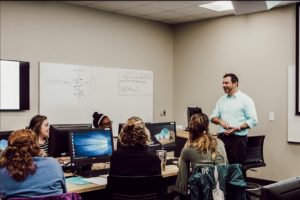
Dr. Ryan Jessup
While in graduate school at Indiana University, Dr. Ryan Jessup collected data to study a theory of decision making that prompted him to conduct this research as a follow-up from that work. As the lead author, Dr. Jessup generated the research idea and designed the experiment which was programmed by Dr. Homer. Levi Ritchie helped program part of the experiment in Python, recruited participants, and collected data before analyzing the data along with Dr. Jessup. The team combined their expertise in their respective fields to compile and edit the paper that was then published in the APA Journal. Dr. Jessup described the goal of their research as, “We wanted to test between multiple competing hypotheses that I had proposed in an earlier paper for the choice overload aka too much choice effect. The effect is that people purchase more when they have fewer options to choose from, violating basic economic principles.”

Levi Ritchie (’15)
The science of cognitive psychology is broad and contains a variety of potential research studies; however, Levi Ritchie described the importance of studying the choice overload effect as essential to the business field, “From a business perspective, understanding the elements that moderate the effect is crucial to marketing. Even when your selection of alternatives is plentiful, it may be beneficial to only present the strongest subset.” Similarly, Dr. Jessup commented on how important the understanding of this effect is when selling or promoting a product, as well as for personal decision making.
“An interesting thing about conducting quality research is that it makes us better at teaching. In my case, it is particularly true because I tend to teach courses on how to conduct or analyze research. But, even if I were teaching a different type of course it would still improve my teaching for several reasons. First, when teaching on a relevant topic, I would be far more aware of the pioneering research – in some cases because I would have been the one to do it; in other cases, it would be because I had to examine all possible theories and explanations when conducting my research, simultaneously giving far more breadth and depth than I would have gotten had I just read about it in the textbook or merely just read a few things about it. In essence, researchers know more about these findings because they are the ones making them – we are not merely reading about them. It is the ultimate in experiential learning”, Jessup said.
The conclusion of this research was explained in-depth in their publication, but Jessup summarized by saying, “We found that one of our proposed explanations well predicted the data whereas another one – the one that is commonly espoused as causing the effect – did not appear to play a role. A specific conclusion was time pressure appears to really drive the effect; so, if you are trying to sell things to people who are often hurried – think drive-thru’s or situations where people often have little children with them – you are better off giving them a very small set of options.”
Levi Ritchie is currently pursuing a career in Data Science, while Dr. Jessup continues to work on research on an improved theory of decision making that combines choice with learning. He is currently working on another project that involves the choices of married individuals and economic games with professors Katie Wick, John Homer and, recently graduated marketing major, Luke Stevens (’20).
by Katherine Norris | May 14, 2020 | Academics, COBA Faculty, Faith Infusion, Outcomes, Poverty and Development, Research, Uncategorized
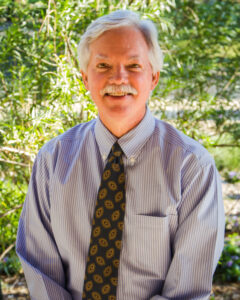 Do you ever wonder what COBA professors do when they aren’t teaching class? You may not know it, but many of our professors commit their time to conducting research of all different types. Dr. Monty Lynn recently co-authored a research article titled, “Better Together: Improving Food Security and Nutrition by Linking Market and Food Systems”. The article is a literature review of market and food systems informing on the latest impacts of COVID-19 towards global food security.
Do you ever wonder what COBA professors do when they aren’t teaching class? You may not know it, but many of our professors commit their time to conducting research of all different types. Dr. Monty Lynn recently co-authored a research article titled, “Better Together: Improving Food Security and Nutrition by Linking Market and Food Systems”. The article is a literature review of market and food systems informing on the latest impacts of COVID-19 towards global food security.
Dr. Lynn says, “The article is the fruit of a collaborative effort with technical advisors at World Vision and CARE, supplemented by faculty members at ACU and the Catholic University of America. To share the findings, the article authors will host a webinar in June to describe our work, mostly with a global CARE and World Vision audience. In the article, we combine two popular approaches in global food security which attempt to strengthen markets and nutrition, and we describe CARE and World Vision food security programming that illustrates the model. In the webinar, we will describe the latest information from CARE and World Vision on how the coronavirus pandemic and COVID-19 are impacting global food security.” Dr. Lynn notes that “It is a welcome and special opportunity to join a research team with two of the largest development organizations in the United States and to collaborate with my colleague, Dan Norell, a Senior Technical Advisor in Economic Development at World Vision in Washington, D.C.”
The article and webinar will explore the following:
- The Inclusive Market and Food Systems Model
- The importance of bringing the market to vulnerable households
- How empowering women multiplies nutritional outcomes
- How access does not necessarily equal consumption
- The impact of COVID-19 on programming and adaptive management for livelihood programs
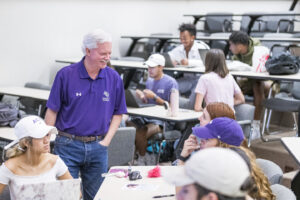
Photo by Jeremy Enlow
International development is a topic that Dr. Lynn stays current with for his research and an International Development class that he occasionally teaches at ACU. His recent research shows that “Major gains have been made in global food security, reducing global hunger. Gains began eroding in 2015, however, and global food insecurity began rising again. Nearly one billion people are food insecure today and 140 million of those became food insecure because of the impact of the coronavirus pandemic and mitigation efforts that have disrupted food production and supply chains.”
This blog post is just a glimpse of the information that is covered in the research article. We encourage you to read the full article HERE and join the webinar on May 19th at 12:30 pm EST, Washington, D.C. time zone HERE.

 “little moments like walking across campus, even though sometimes it’s while rushing to class, hearing the chapel bells ringing, being in class, the activities and events (homecoming with the fireworks, tailgates with amazing food and activities, international student events, theater, etc.), the Bean and campus center food, snow days, chapel worship, and most importantly the time I got to spend with all the wonderful people I met at ACU.”
“little moments like walking across campus, even though sometimes it’s while rushing to class, hearing the chapel bells ringing, being in class, the activities and events (homecoming with the fireworks, tailgates with amazing food and activities, international student events, theater, etc.), the Bean and campus center food, snow days, chapel worship, and most importantly the time I got to spend with all the wonderful people I met at ACU.” Adebesin knows that attending college in a foreign country is a challenge for many international students. She advises international students to “be open because most people at ACU are always ready and willing to help. The international student community has many wonderful people as well as a lot of activities such as international student dinner, ethnos, Hispanic Unidos, etc. I always had an amazing time at these events and would encourage every international student to participate. In light of this, I would like to give a special shout-out to Lucy Dawson, Laura Blake, Daniel Garcia, Susan and Art Green, and the other international student office staff who made ACU feel like home.” Gbemi was also enrolled in the Friendship Family Program where she met Karen Douglas, a counselor at ACU. “Karen and her family have been such a blessing in my life while at ACU and after in more ways than I can thank her for. I’m very thankful and blessed to have met someone so loving and amazing and to have another home and family away from home.”
Adebesin knows that attending college in a foreign country is a challenge for many international students. She advises international students to “be open because most people at ACU are always ready and willing to help. The international student community has many wonderful people as well as a lot of activities such as international student dinner, ethnos, Hispanic Unidos, etc. I always had an amazing time at these events and would encourage every international student to participate. In light of this, I would like to give a special shout-out to Lucy Dawson, Laura Blake, Daniel Garcia, Susan and Art Green, and the other international student office staff who made ACU feel like home.” Gbemi was also enrolled in the Friendship Family Program where she met Karen Douglas, a counselor at ACU. “Karen and her family have been such a blessing in my life while at ACU and after in more ways than I can thank her for. I’m very thankful and blessed to have met someone so loving and amazing and to have another home and family away from home.” We want to give a warm welcome to Dr. Julia Dare, Visiting Professor of Management Sciences. Before Dr. Dare began teaching, she worked in corporate strategy consulting and global management in the biopharmaceutical industry. Since Dr. Dare made the transition into academia, she says,
We want to give a warm welcome to Dr. Julia Dare, Visiting Professor of Management Sciences. Before Dr. Dare began teaching, she worked in corporate strategy consulting and global management in the biopharmaceutical industry. Since Dr. Dare made the transition into academia, she says,
 To close, Dr. Dare wanted students to know,
To close, Dr. Dare wanted students to know, 



 COBA professors have been in a researching groove lately (as Don Pope would say, “They must be butter; they’re on a roll.”). We have seen professors such as Dr. Monty Lynn, Dr. Ryan Jessup, and now Dr. Dennis Marquardt, continue to conduct important research and have their work published in industry journals. Dennis Marquardt recently wrote a paper entitled:
COBA professors have been in a researching groove lately (as Don Pope would say, “They must be butter; they’re on a roll.”). We have seen professors such as Dr. Monty Lynn, Dr. Ryan Jessup, and now Dr. Dennis Marquardt, continue to conduct important research and have their work published in industry journals. Dennis Marquardt recently wrote a paper entitled: 



 Do you ever wonder what COBA professors do when they aren’t teaching class? You may not know it, but many of our professors commit their time to conducting research of all different types. Dr. Monty Lynn recently co-authored a research article titled, “Better Together: Improving Food Security and Nutrition by Linking Market and Food Systems”. The article is a literature review of market and food systems informing on the latest impacts of COVID-19 towards global food security.
Do you ever wonder what COBA professors do when they aren’t teaching class? You may not know it, but many of our professors commit their time to conducting research of all different types. Dr. Monty Lynn recently co-authored a research article titled, “Better Together: Improving Food Security and Nutrition by Linking Market and Food Systems”. The article is a literature review of market and food systems informing on the latest impacts of COVID-19 towards global food security.